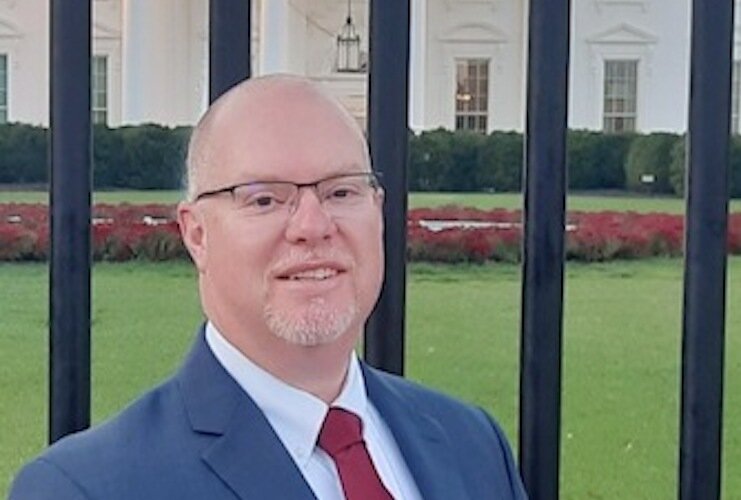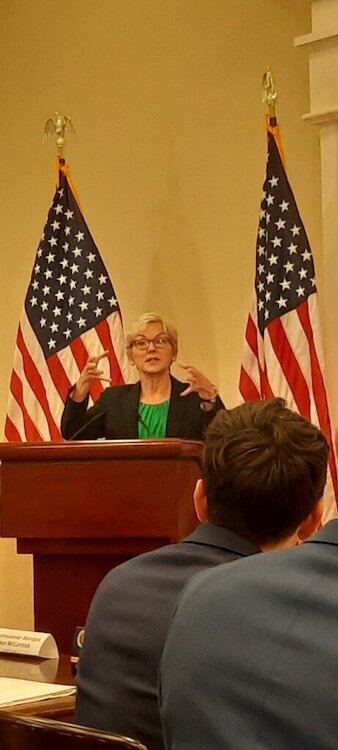Regional United Way takes message of the power of working together to Washington D.C.
When government, communities and nonprofits work together, we can make an incredible and positive impact in the lives of countless Americans, says Chris Sargent, President and CEO of United Way of South Central Michigan. He recently traveled to the nation's capital to visit the White House and officials there.
South-Central Michigan was well represented as leaders from three Michigan United Ways met with the Biden Administration in Washington, D.C., recently to discuss how pandemic-related federal programs are helping United Ways meet local needs, especially among those who are considered low- and middle-income — those who have jobs but still struggle to make ends meet.
Chris Sargent, President and CEO of United Way of South Central Michigan, attended the White House briefing, “Communities In Action: Building a Better Michigan,” to share how United Way has played a key role in helping Michigan communities deal with the economic effects of COVID-19.
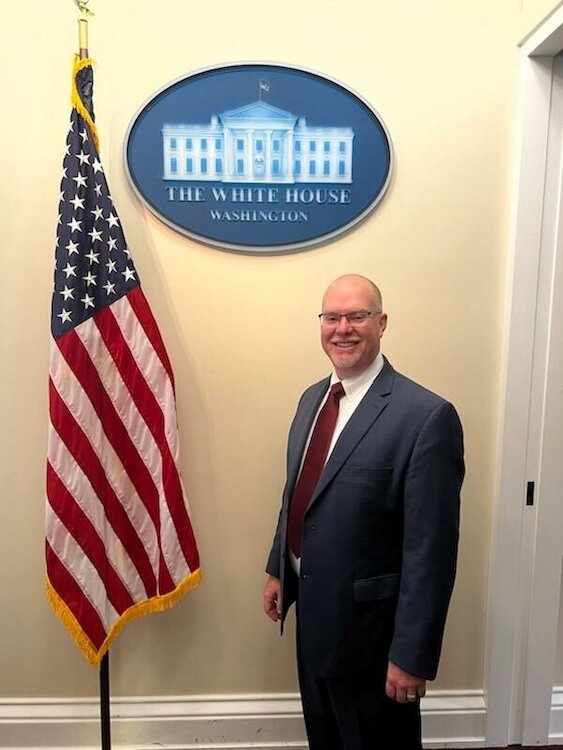
“Working poor” isn’t the right term for the many struggling families United Way sees, Sargent says. “Typically, ‘working poor’ describes people who work for 27 weeks or more during the year, yet their income still falls below the poverty level,” he explains.
Instead, the acronym ALICE is used: Asset Limited, Income Constrained, Employed.
That term brings in the actual cost of everyday essentials, including food, housing, health care, child care, transportation, technology and taxes, then sets a household budget “threshold” based on how many people live in a household and where they live, Sargent says.
Those who earn above the ALICE threshold are able to pay their bills and save for the future; those below the ALICE threshold, including those in poverty but also just above poverty, struggle to make ends meet.
“All of this makes ALICE data a much better way to understand financial hardship in our communities — and that can help community partners like United Way respond to the needs of ALICE individuals and families better,” he says.
To date, Michigan United Ways have received more than $81 million from the American Rescue Plan Act (ARPA) and more than $66 million from the Coronavirus Aid, Relief & Economic Security (CARES) ACT to address those needs.
Administered by local Michigan United Ways, the programs supported by the relief funds focused on youth, housing and rent, mental health, food security, small businesses, and health care access. The funds also help pay for Michigan 211, a free service that connects residents with programs and resources in their communities, and ensured United Ways and other nonprofits could keep staff and continue operating when their communities needed them most.
Vice President Kamala Harris thanked the United Way leaders for putting federal dollars to work in Michigan.
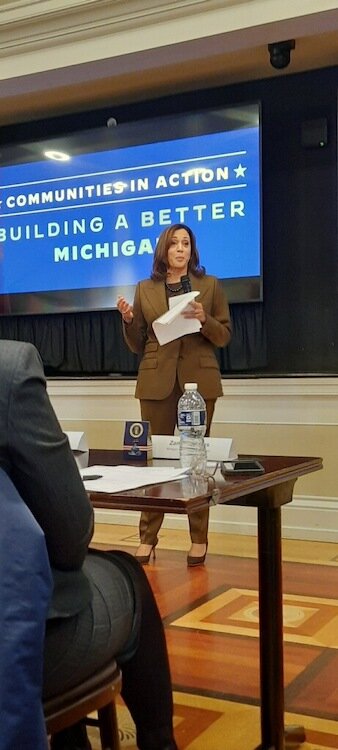
A funding Bill means nothing until it hits the streets, she told them. “And that… is where you all come in to make sure that we see it through and that the people actually feel it. It’s not just about a press conference; it’s about making sure that people feel it. And so that’s what you all have been doing.”
The Infrastructure Bill allots $2.9 billion for 120 projects in Michigan, “which is going to have a huge impact,” Harris said in her address.
“Partnership like this works,” Sargent agrees. “When government, communities and nonprofits work together, we can make an incredible and positive impact in the lives of countless Americans. That’s good for them, for our communities, and for our nation. I’m eager to build on this partnership.”
Before the recent White House briefing, the closest Sargent had been to the West Wing of the White House was watching the TV show of that title, he quips.
As impressive as he found the experience of the real White House, the most memorable part of his meeting, he says, was the opportunity to talk to leaders about United Way’s role in shepherding federal dollars to financially struggling families.
“Hearing how partners count on collaboration to build stronger, equitable communities — that was moving and memorable,” Sargent says.
The meeting gathered about 30 elected officials and leaders from nonprofits, veterans groups, senior groups, and labor. Also representing Michigan United Ways were Jamie Gaskin, CEO of United Way of Genesee County; and Eric Davis, Vice President of Basic Needs, Health and Outreach for United Way of Southeastern Michigan.
“The session offered a great opportunity to share stories about how, by working together, we are supporting children and families,” Sargent says. “(United Ways are) meeting basic needs, helping families build financial stability, creating good-paying jobs, strengthening programs that help make our state and our communities safer, more equitable, and much more.”
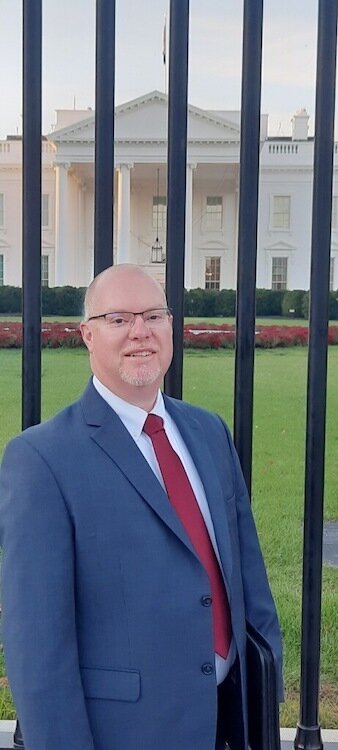
Sargent says he stressed to national leaders that partnerships like this work. “Our collective work is helping local economies rebound. Families facing poverty are instead building better lives. Hope is replacing despair,” he says. “When government, communities and nonprofits work together, we can make an incredible and positive impact in the lives of countless Americans. That’s good for them, for our communities, and for our nation.”
In addition to receiving ARPA and CARES Act funding, several local Michigan United Ways also received funding through the Paycheck Protection Program, Employee Retention Tax Credit and Emergency Food & Shelter Program to ensure people in need had food, shelter, and other essentials.
Michigan United Ways have invested more than $147 million into our communities across the state.
“I firmly believe partnership is the only way our communities can create lasting solutions to financial hardship,” Sargent says. “The many partners that United Way worked alongside to invest ARPA and CARES Act dollars across our region showed that when we work together, we can make a powerful and meaningful difference. That’s a message we were eager to bring to the Biden administration and to our lawmakers in Washington. We showed them that their trust in our communities to build broad partnerships to deliver real change to real people was trust well-placed.
“Imagine how much more we could do, how many more lives could be changed, if we built on that partnership of government, nonprofits, organized labor, and community leaders,” Sargent says. ‘I’m hoping that message was heard loud and clear.”
Southwest Michigan offers uniquely powerful relationships and shared commitment to meeting those needs with lasting solutions, Sargent adds. “I think our region, and really Michigan as a whole, has a track record of partnership that’s crucial to meeting these complex issues. It takes time, it takes commitment, and it takes resources. I really feel like our partnership and successes with ARPA and CARES proves we can do this.”
“Financial hardship is incredibly complex. ALICE data shows us that becoming financially stable isn’t just about having a job, though that’s a vital piece of the puzzle,” Sargent says. “That job needs to pay enough. Communities need to have safe and affordable housing. Working families need access to affordable child care, health care, and reliable transportation. As communities, we need to face up to and work together to address the long-term effects of injustice on historically under-represented and marginalized people.”
“I’m eager to see us build on this partnership,” Sargent recently wrote. “I’m inspired by the thought of exploring more ways to work together and create lasting change.
“Together. That’s how greater impact really happens.”

